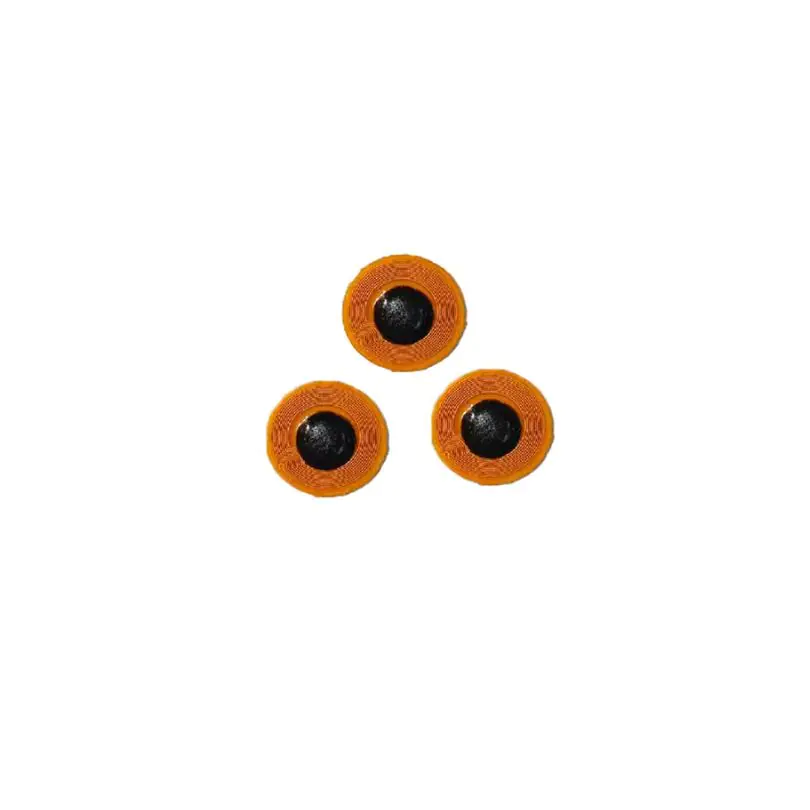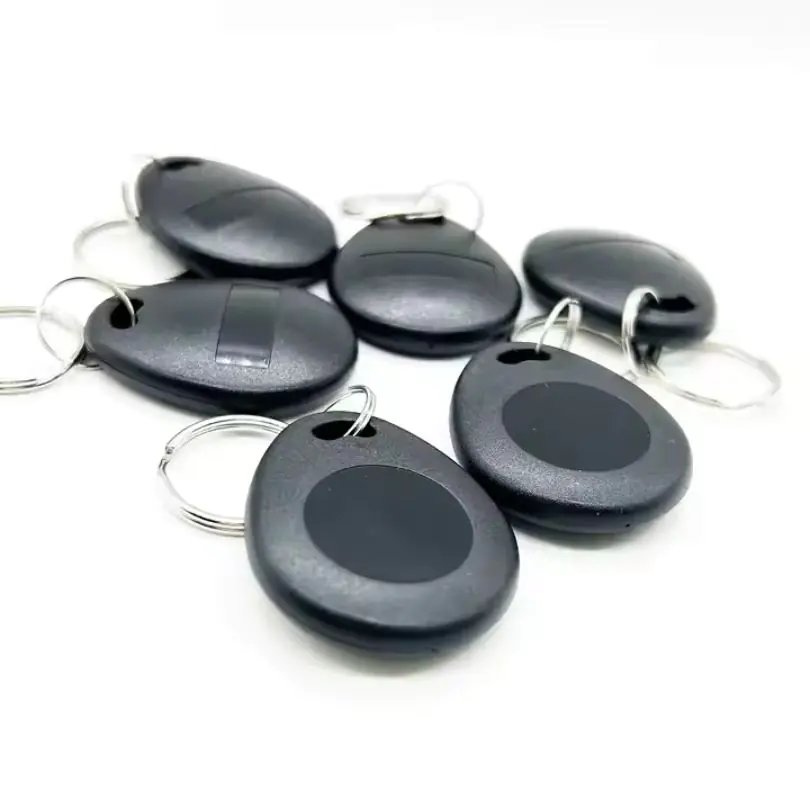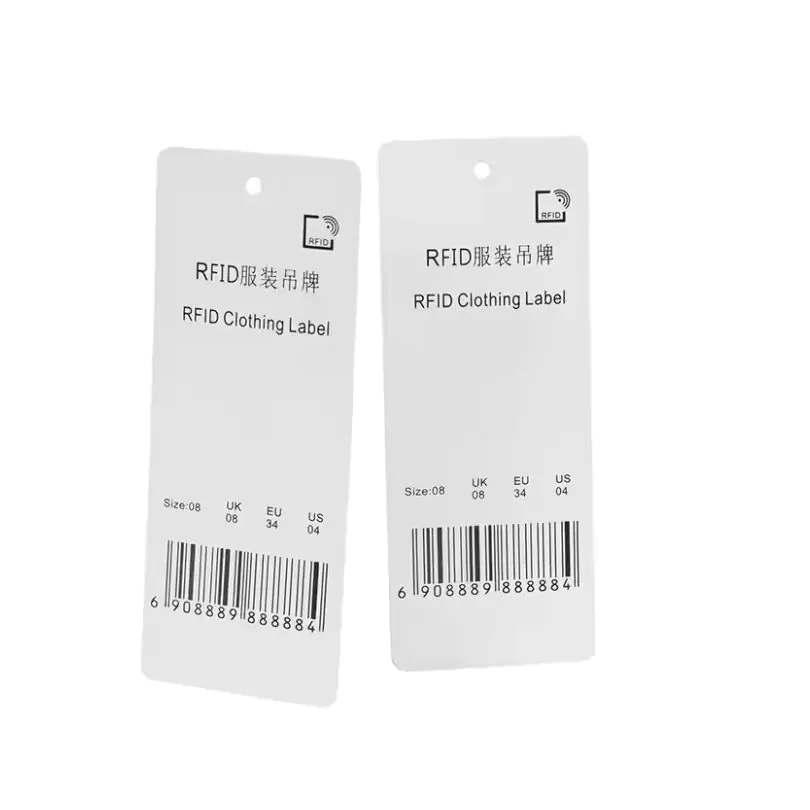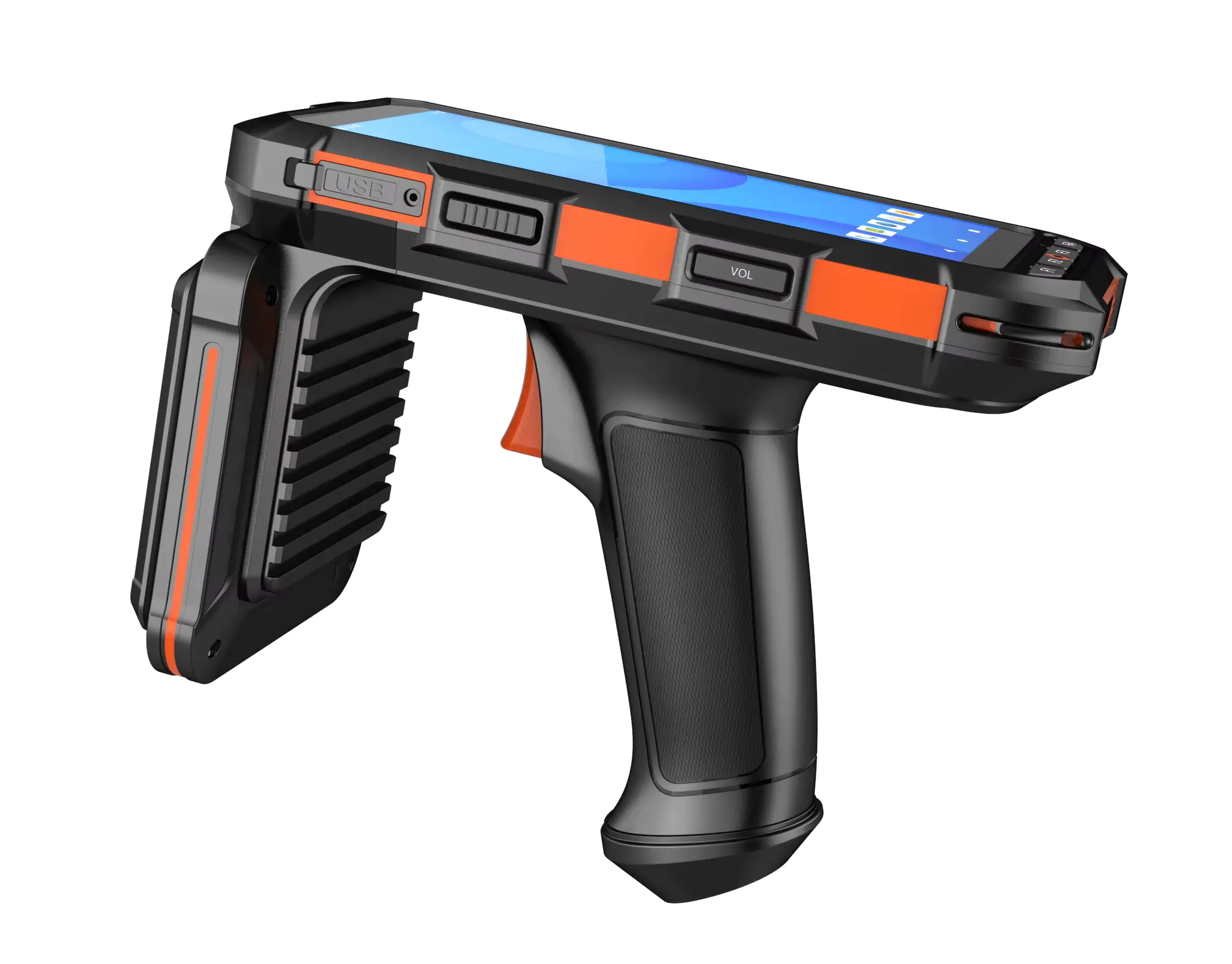
Avantazhet e sistemeve RFID: Pse dallohen
Tabela e Përmbajtjes
Unlocking Real-Time Inventory, Automation, and Efficiency Across Industries
But what exactly makes RFID stand out? Why are so many businesses investing in it?
In this article, we’ll explore RFID systems’ core advantages, compare them to other tracking technologies, and examine how they’re revolutionizing industries around the globe.
What Is an RFID System?
An RFID system is a wireless identification technology that uses radio waves to identify and track tags attached to objects automatically. These tags can store data—such as a unique ID number, batch code, or location—which an RFID reader reads without direct contact or line of sight.
An RFID system typically includes:
- Etiketat RFID – Passive, active, or semi-passive (BAP) chips with antennas
- Lexuesit RFID – Devices that wirelessly read the tag’s data
- Middleware / Software – Integrates the data into your ERP, WMS, or inventory platform
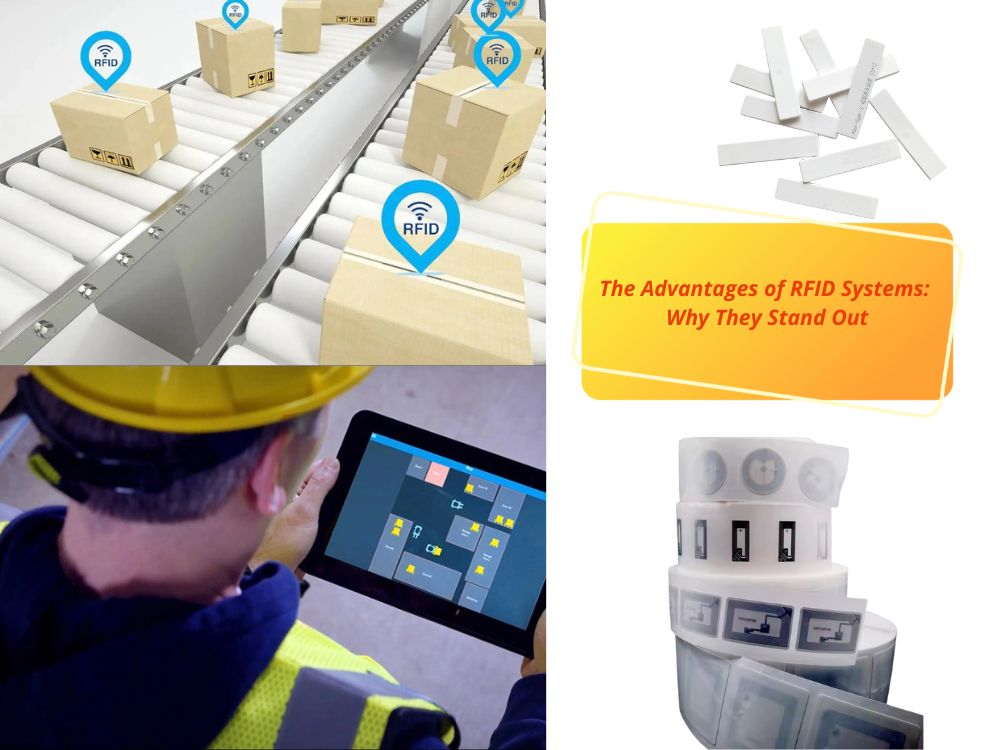
Key Advantages of RFID Systems
1. Real-Time Inventory Tracking
RFID allows you to track inventory instantly and accurately, even in bulk, without scanning each item manually. This provides real-time visibility into stock levels, asset movement, and product locations across multiple warehouses or stores.
Ndikimi:
- Faster audits and stock checks
- Reduced stockouts and overstocks
- Optimized inventory turnover
2. Improved Accuracy & Reduced Human Error
Barcodes require manual scanning, which leads to missed items and data input mistakes. RFID automates the process, helping businesses achieve 95–99% inventory accuracy rates.
With fewer errors, you:
- Prevent costly write-offs
- Minimize shipping and receiving mistakes
- Improve customer satisfaction with on-time, accurate fulfillment
3. Faster Data Collection & Bulk Scanning
RFID readers can scan hundreds of tags simultaneously, even through packaging or at a distance — a major time-saver in busy environments.
Use Case: A warehouse worker walks through a pallet aisle with a handheld RFID scanner and captures the data of every tagged item within seconds — no line-of-sight or individual scanning needed.
4. Automation Across Supply Chains
RFID supports hands-free automation of core logistics and operational tasks. It triggers automatic updates in your system when goods are received, picked, or moved.
Përfitimet përfshijnë:
- Streamlined workflows
- Kostot e reduktuara të punës
- Increased throughput and responsiveness
5. Enhanced Security & Traceability
RFID adds a layer of visibility and security by tracking the movement of goods, people, and equipment. You can monitor:
- Unauthorized removal of inventory
- Returnable asset cycles (like crates or tools)
- Maintenance schedules and product recalls
RFID improves compliance, asset recovery, and accountability—crucial in the pharmaceutical, aviation, and healthcare industries.
6. Long-Term Cost Savings
While RFID requires an initial investment, it delivers long-term ROI through the following:
- Reduced labor
- Fewer errors and returns
- Leaner inventory management
- Lower losses from shrinkage
For many companies, RFID systems pay for themselves within 12–24 months — especially in high-volume or high-value inventory environments.
RFID vs Barcode: What’s the Difference?
| Veçori | RFID | Barkodi |
| Scanning Method | Wireless, no line-of-sight | Manual, requires line-of-sight |
| Lexim me shumicë | Yes (hundreds at once) | No (one at a time) |
| Qëndrueshmëria | Rugged, reusable | Dëmtohet lehtë |
| Ruajtja e të Dhënave | More data per tag | Limited (just an ID) |
| Speed & Efficiency | High-speed automation | Slower, labor-intensive |
| Kostoja për etiketë | Higher upfront cost | Cheaper initially |
Conclusion: RFID is faster, more reliable, and scalable, especially for businesses seeking real-time tracking and automation.
Industries Benefiting from RFID Systems
RFID transforms how industries track, manage, and automate operations from retail to aerospace.
RFID (Radio Frequency Identification) systems are no longer limited to warehouses and logistics hubs — they’re now used across nearly every major industry. Businesses turn to RFID for its ability to track assets in real time, reduce manual labor, improve accuracy, and enable automation at scale.
Below is an in-depth look at key industries that benefit from RFID systems, with real-world examples of how the technology is applied:
1. Retail & Fashion
RFID Use Cases:
- Item-level inventory tracking (clothing, shoes, accessories)
- Omnichannel fulfillment (BOPIS, ship-from-store)
- Smart fitting rooms with automatic product detection
- Anti-theft electronic article surveillance (EAS)
Përfitimet:
- Inventory accuracy of over 98%
- Faster restocking and reduced out-of-stocks
- Improved customer experience and full-price sales
- Seamless integration with POS and eCommerce platforms
Shembull: Global fashion brands like Zara and Uniqlo use UHF RFID hang tags to track items from warehouse to store shelf, enabling real-time visibility and fewer markdowns.
2. Logistics & Supply Chain
RFID Use Cases:
- Pallet, carton, and container tracking
- Inbound and outbound shipment verification
- Returnable asset management (RTIs)
- RFID tunnels and portals at dock doors for bulk reading
Përfitimet:
- Streamlined receiving and shipping processes
- Lower picking/packing errors
- Real-time inventory updates across warehouses
- Improved order accuracy and delivery speed
Shembull: 3PL providers implement RFID systems to manage multiple client inventories, reducing labor costs and increasing throughput.
3. Manufacturing & Industrial Automation
RFID Use Cases:
- Work-in-progress (WIP) tracking on production lines
- Machine tool tracking and maintenance schedules
- Raw material and component inventory control
- Kanban and lean manufacturing systems
Përfitimet:
- Real-time process visibility and production flow tracking
- Reduced downtime due to missing tools or materials
- Enhanced product traceability and defect control
- Support for Industry 4.0 and smart factory initiatives
Shembull: Automotive manufacturers use RFID tags to identify parts at every step, ensuring correct assembly and faster recalls if needed.
4. Healthcare & Pharmaceuticals
RFID Use Cases:
- Patient ID wristbands
- Medication and blood bag tracking
- Inventory of surgical instruments and medical devices
- Temperature-sensitive pharmaceutical tracking
Përfitimet:
- Prevents medication errors and misidentification
- Reduces lost or misplaced equipment
- Supports compliance with FDA and health regulations
- Enhances patient safety and care coordination
Shembull: Hospitals use RFID cabinets and smart shelves to track implant usage, ensuring accurate billing and inventory replenishment.
5. Pharmaceuticals & Life Sciences
RFID Use Cases:
- Tracking high-value drugs through the supply chain
- Monitoring expiration dates and lot numbers
- Authenticating genuine products
- Sample tracking in labs and research facilities
Përfitimet:
- Full traceability from manufacturing to delivery
- Better inventory rotation (FIFO) and compliance
- Minimizes counterfeit drug circulation
- Automated sample auditing and chain-of-custody records
6. Aerospace & Aviation
RFID Use Cases:
- Tracking tools and aircraft parts
- Inventory of consumables and in-flight supplies
- Maintenance scheduling and compliance logging
- Passenger and baggage tracking
Përfitimet:
- Meets stringent safety and regulatory standards
- Eliminates lost tools and parts during inspections
- Improves maintenance efficiency
- Increases customer satisfaction through faster baggage delivery
Shembull: Airlines use RFID-enabled baggage tags to reduce mishandling and improve tracking from check-in to arrival.
7. Hospitality & Events
RFID Use Cases:
- Hotel key cards and guest access control
- Event wristbands with cashless payment capabilities
- Pool towel and linen tracking
- Room service and mini-bar inventory automation
Përfitimet:
- Seamless, contactless guest experience
- Accurate inventory of reusable items
- Increased revenue through upsells and analytics
- Fast check-ins, improved security, and brand personalization
Shembull: Resorts use waterproof RFID wristbands to enable guests to open doors, pay for drinks, and check into events — all with one wearable device.
8. Agriculture & Livestock Management
RFID Use Cases:
- Animal identification using RFID ear tags
- Feed, medication, and breeding cycle tracking
- Smart fencing and pasture access monitoring
- Equipment and supply inventory tracking
Përfitimet:
- Full traceability of animal health and movement
- Improved farm productivity and disease prevention
- Simplified reporting for government programs
- Accurate herd data and compliance with export requirements
Shembull: Livestock producers use RFID to automate data collection for feed efficiency, health monitoring, and breeding records.
9. Education & Libraries
RFID Use Cases:
- Self-checkout and return systems for books and media
- Attendance tracking using RFID student ID cards
- Tracking lab equipment and classroom resources
- Library inventory audits
Përfitimet:
- Faster borrowing and returns
- Real-time asset tracking across campuses
- Reduced theft and misplaced items
- Improved student safety and access control
Shembull: Universities implement RFID library systems to reduce wait times, automate inventory updates, and offer 24/7 self-service kiosks.
10. Government & Military
RFID Use Cases:
- Equipment and vehicle tracking
- Secure access to restricted areas
- Uniform and gear inventory
- Document and file tracking
Përfitimet:
- Increases asset accountability and readiness
- Supports logistics in remote and high-risk environments
- Enhances data security and traceability
- Enables long-range, tamper-resistant identification
Shembull: Defense agencies use rugged RFID tags on weapons and vehicles to maintain complete visibility in the field and during transport.
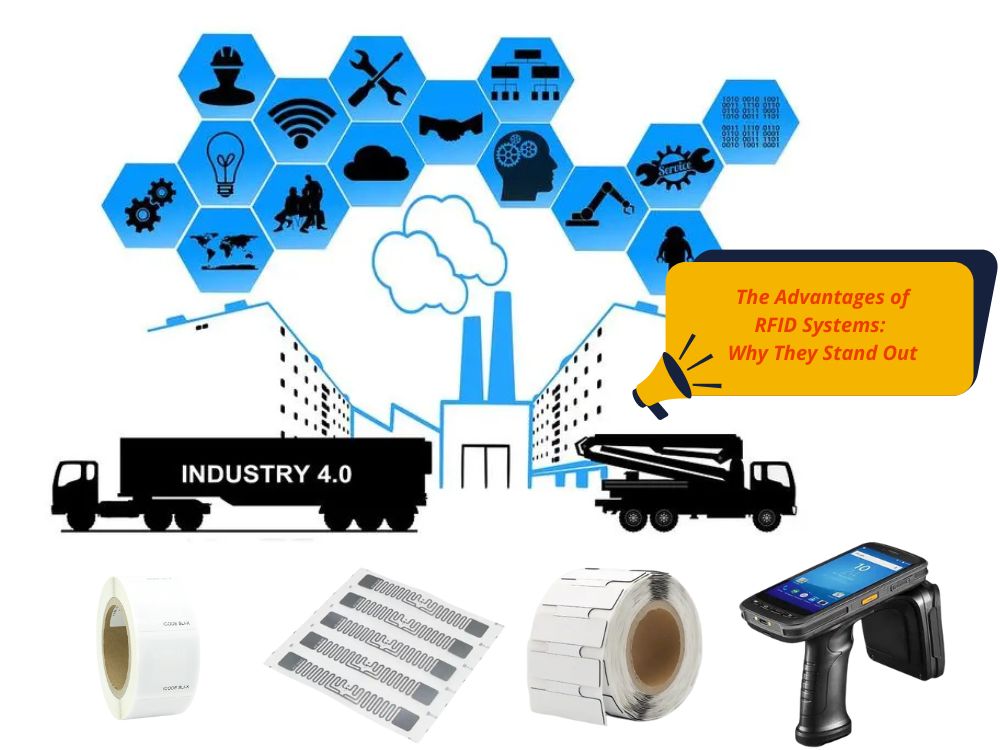
RFID vs Barcode: What’s the Difference?
| Veçori | RFID | Barkodi |
| Line-of-Sight Needed | Nr | po |
| Read Multiple Items | po | Nr |
| Qëndrueshmëria | Withstands harsh conditions | Dëmtohet lehtë |
| Scan Speed | Milliseconds, bulk scanning | Një nga një |
| Kapaciteti i të dhënave | More complex, programmable data | Limited data only |
| Kostoja | Slightly higher per tag, but scalable | Low initial cost |
RFID is more scalable, robust, and automation-friendly—especially for growing businesses.
Is RFID Right for Your Business?
RFID is a smart investment if you:
- Handling large inventory volumes
- Rely on fast, accurate logistics
- Want to reduce shrinkage and manual labor
- Need real-time data and better supply chain visibility
Whether you run a warehouse, hospital, hotel, or retail chain, RFID helps you do more with less — increasing efficiency, reducing errors, and future-proofing your operations.
FAQs – RFID System Advantages
How does RFID improve operational speed?
RFID readers scan multiple items at once without manual line-of-sight scanning. This cuts stocktaking time and speeds up item tracking.
Can RFID tags be reused or reprogrammed?
Yes. Many RFID tags are re-writable and can be used multiple times, especially in logistics or equipment tracking.
Is RFID suitable for harsh or outdoor environments?
Absolutely. RFID tags come in rugged versions designed to withstand heat, chemicals, moisture, and physical wear.
Is RFID more expensive than barcodes?
While individual RFID tags may cost more, they provide significant savings in labor, time, and error reduction, often delivering ROI within months.
Ready to Upgrade with RFID?
At JIA RFID, we specialize in helping businesses transition to RFID with custom tags, system integration, and free samples for testing.
📩 Request a Free Quote or Sample
📱 Chat with us on WhatsApp: +86 138 2318 6864
📦 UHF, HF, NFC tags | Bulk pricing | OEM branding available
Komentet
Produkte të nxehta
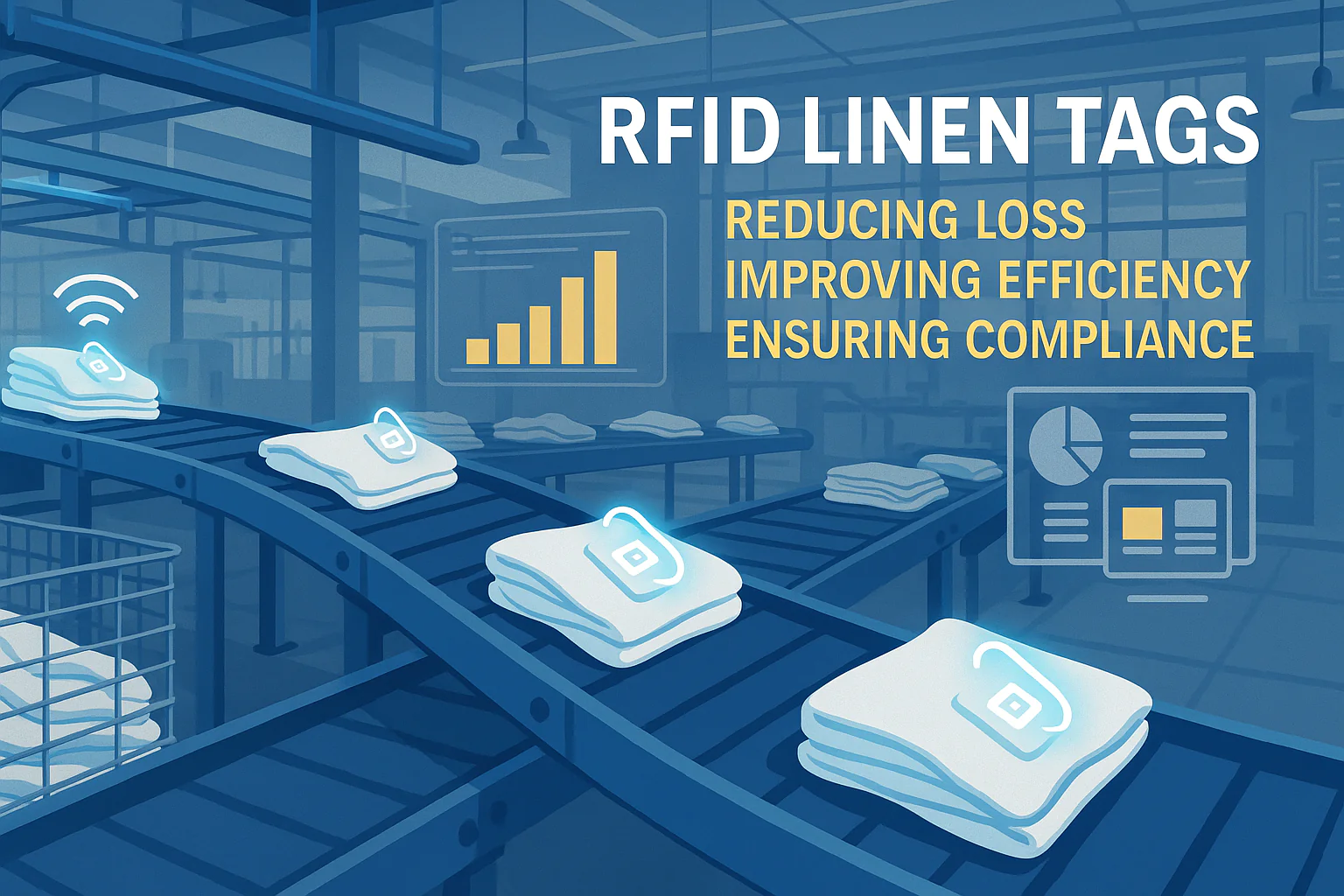
The Benefits of RFID Linen Tags in Commercial Laundry
Managing laundry in hospitals, hotels, or large laundry services is a big job. Each day, thousands of sheets, towels, and uniforms are washed, sorted, and sent back out. But problems like lost linens, sorting mistakes, and manual counting can cost companies a lot of money. For example, mid-sized hotels can lose over $200,000 each year from missing linens.
That’s where RFID Linen Tags come in.

RFID Laundry Tag Guide 2025: Smarter Tracking, Less Waste, and Real Results
Did you know that smart RFID systems can reduce laundry losses by up to 95%? That’s a game-changer for laundry businesses that lose time and money tracking items manually.
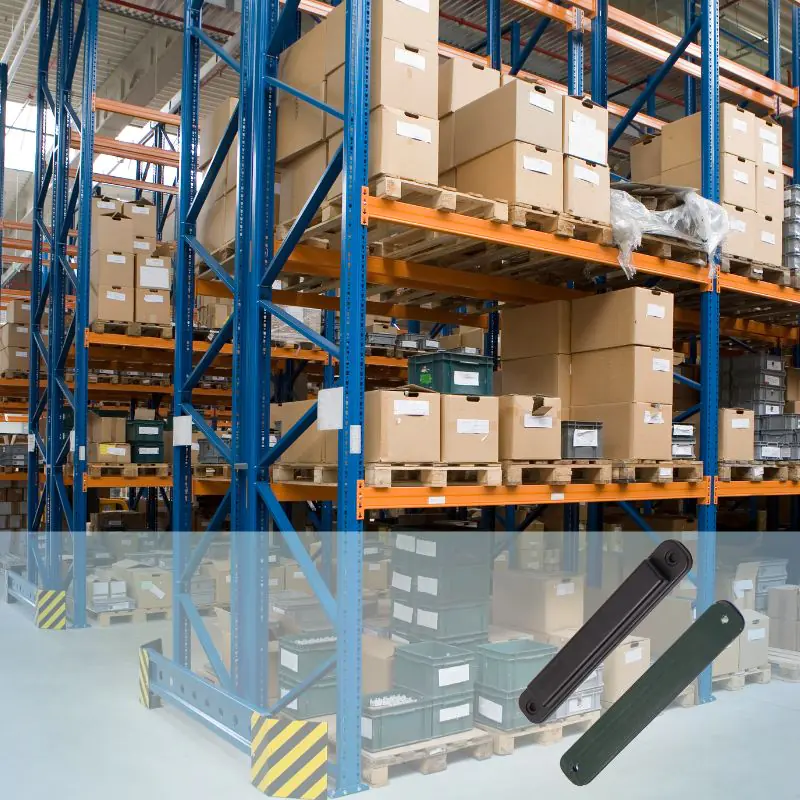
How RFID Tags for Pallet Streamline Tracking in Warehouses
Pallet-level tracking is critical for inventory accuracy, operational efficiency, and real-time visibility in today’s fast-paced logistics and supply chain environments.
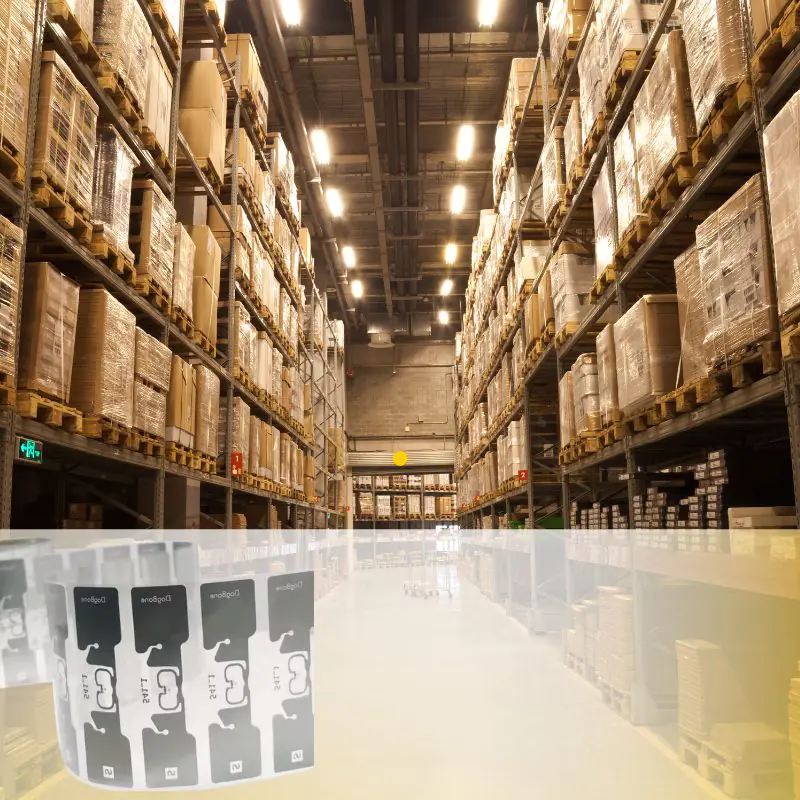
Top 5 Types RFID Tag for Warehouse Automation
Warehouse operations are becoming more complex, and manual tracking methods can’t keep up. RFID tags for warehouse automation enable real-time data capture, faster inventory processing, and better traceability.
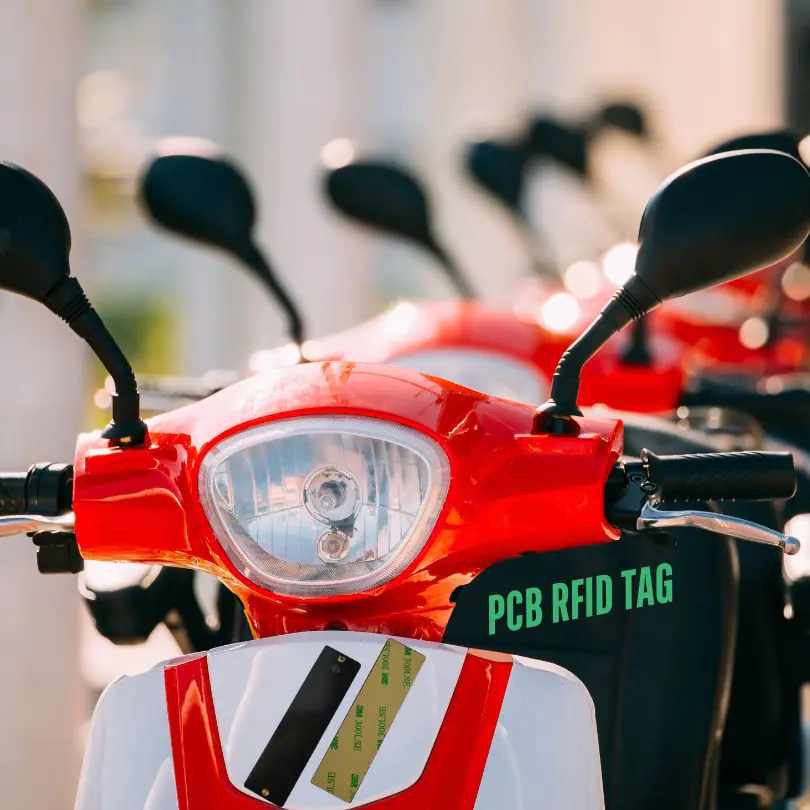
RFID Smart License Plates Help Hengshui to Track The E-Bikes
As urbanization accelerates and the green travel movement gains momentum, electric bicycles have become vital to daily commuting in Hengshui, Henan Province.
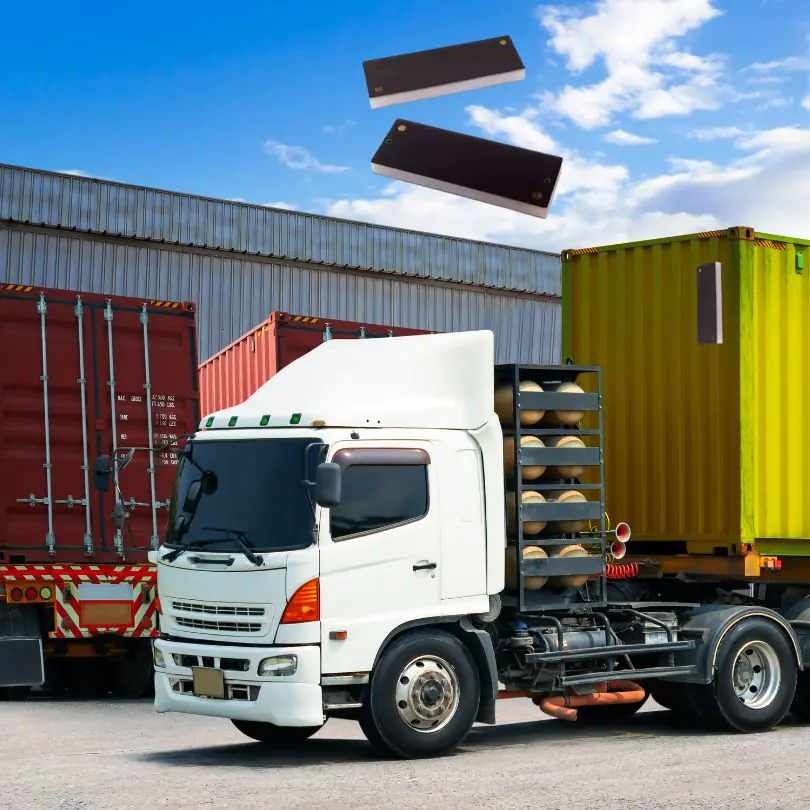
Çfarë është një etiketë PCB
Mësoni se si zgjidhjet inovative të etiketave dhe RFID transformojnë industritë nga shitja me pakicë dhe logjistika në kujdesin shëndetësor dhe arsimin.
Etiketat
BLOG TË LIDHUR

The Benefits of RFID Linen Tags in Commercial Laundry
Managing laundry in hospitals, hotels, or large laundry services is a big job. Each day, thousands of sheets, towels, and uniforms are washed, sorted, and sent back out. But problems like lost linens, sorting mistakes, and manual counting can cost companies a lot of money. For example, mid-sized hotels can lose over $200,000 each year from missing linens.
That’s where RFID Linen Tags come in.

RFID Laundry Tag Guide 2025: Smarter Tracking, Less Waste, and Real Results
Did you know that smart RFID systems can reduce laundry losses by up to 95%? That’s a game-changer for laundry businesses that lose time and money tracking items manually.

How RFID Tags for Pallet Streamline Tracking in Warehouses
Pallet-level tracking is critical for inventory accuracy, operational efficiency, and real-time visibility in today’s fast-paced logistics and supply chain environments.

